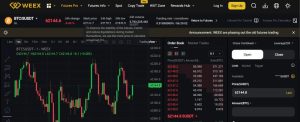The Cardano Network encountered a brief outage on Sunday, occurring between block 8300569 and block 8300570. The outage impacted over 50% of the network.
However, the network was quick to recover, with the problem solved automatically, allowing the network to be back online within minutes.
Cardano’s Brief Outage
The Cardano network suffered a brief outage on Sunday, impacting over 50% of the network’s nodes. However, the outage barely caused any disruption and was automatically fixed within minutes. Rick McCracken, stake pool operator and developer building staking tools for Cardano, discussed the issue and assured the community that the entire network was not impacted. He gave the reason behind the outage as an “anomaly,” which caused over 50% of the nodes to disconnect from the network and restart. However, the cause of the outage has not been determined as yet.
Several developers flagged the issue on GitHub, stating that block production was impacted for a few minutes. However, they added that all nodes disconnected and restarted automatically. McCracken tweeted,
“There was a brief period of degradation. Most nodes impacted had gracefully recovered. No network restart was required.”
A Transient Anomaly
The Telegram SPO for Input Output Global, the entity behind the Cardano blockchain, revealed that the outage appeared to have been triggered by a transient anomaly.
“This appears to have been triggered by a transient anomaly causing one of the two reactions in the node; some disconnected from a peer, and others threw an exception and restarted. Such transient issues (even if they were to affect all nodes) were considered in the design of the Cardano node and consensus. The systems behaved exactly as expected.”
Input Output Global also stated that the impact of the outage was low, affecting only relay and block-producing nodes. It stated that Edge nodes appeared to be functioning as expected.
Outages On Other Networks
There have been several instances of blockchain nodes going offline on other networks as well. The most prominent example is that of Solana, which has suffered a considerable number of outages in the recent past. One such outage took the network down for over seven hours. In another such instance, the Solana network had to be restarted to address a network stoppage. There are several reasons why a node or several nodes could fail, ranging from an overload of activity and transactions on the network to a faulty code.
A quick fix to such faults indicates robust fundamentals for the network, which was the case with the Cardano outage. The quick fix led several members of the Cardano community to point to the resilience of the blockchain and cite it as one of the reasons the Cardano blockchain is better than Solana, which had faced multiple outages in 2022.
A Resilient Network
This view was echoed by SundaeSwap CTO Pi Lanningham, who tweeted,
“The real takeaway for me is how impressively resilient the Cardano network is. Something took down ~60% of nodes, and the network recovered in a few minutes and continued producing blocks throughout.”
SundaeSwap is a Cardano-powered decentralized exchange (DEX) and automated liquidity provision protocol.
Disclaimer: This article is provided for informational purposes only. It is not offered or intended to be used as legal, tax, investment, financial, or other advice.





















